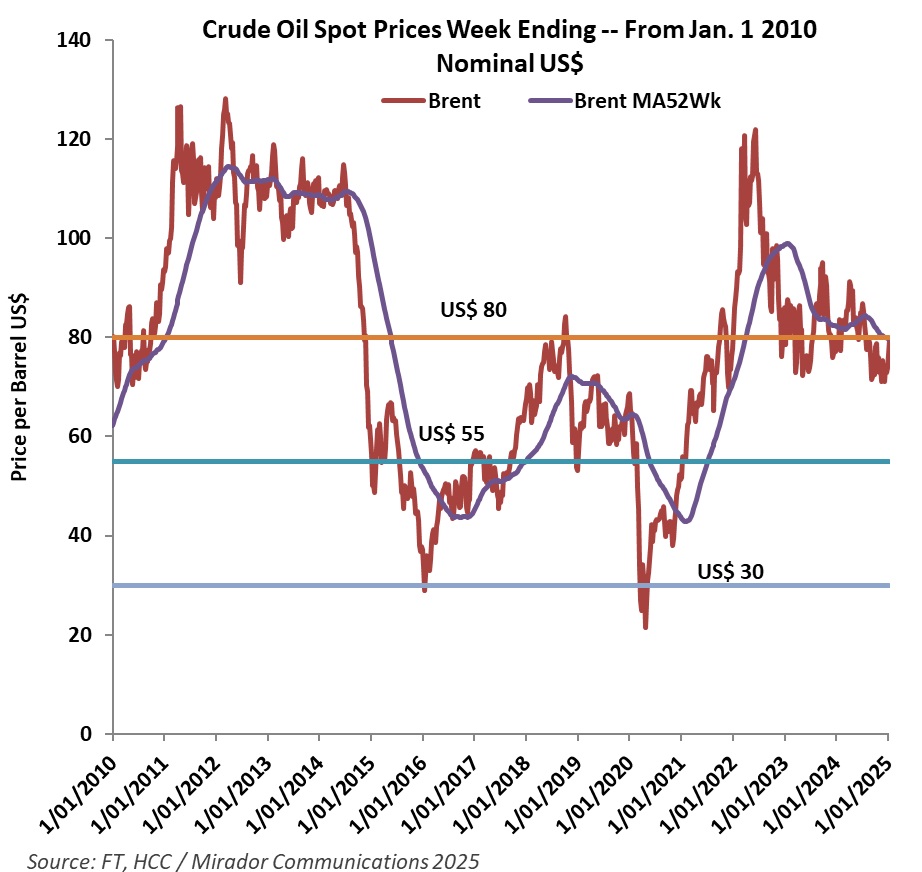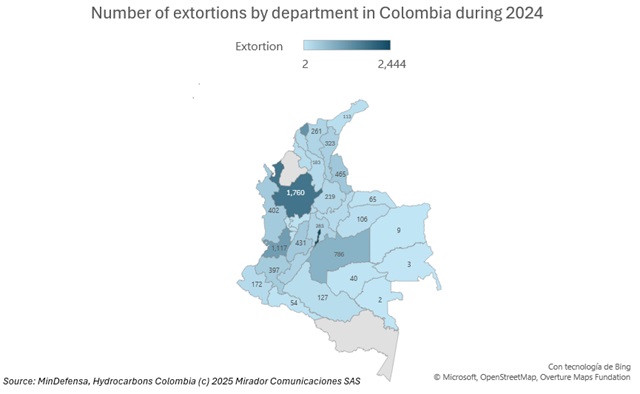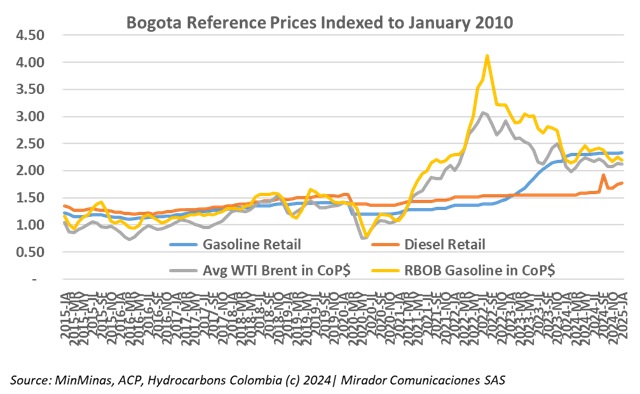
Time for our annual predictions article. Mostly focused on quantitative measures of the industry – prices, Capex, reserves, production – but also some comments on policy issues for 2025.

The National Business Council (Consejo Gremial Nacional) and the Colombian Federation of Cargo Transporters (Colfecar) raised alarm over worsening security issues in Colombia, including a surge in extortion cases and road blockades, despite a decline in kidnappings.
The Colombian Ministry of Mines and Energy (MinEnergia) unveiled a draft decree formalizing the merger of the National Hydrocarbons Agency (ANH) and the Institute for Planning and Promotion of Energy Solutions for Non-Interconnected Zones (IPSE).
A team of young innovators from Bogotá won the Evoke Tournament, an initiative supported by Ecopetrol (NYSE: EC), its open innovation network Econova, and the World Bank.
Colombia’s natural gas sector faces increasing challenges as the country loses self-sufficiency, and needs to import gas to meet growing demand.

A recent report by Naturgas highlights the state of gas production and consumption across Colombia in 2024.
The energy transition has placed the oil and gas industry at the forefront of global discussions on reducing dependence on fossil fuels. Amid this shift, the future of existing oil infrastructure and business models is under scrutiny. Oleoducto de Colombia exemplifies how companies can navigate this complex landscape while balancing current operations and long-term sustainability goals.
The Escazú Agreement, adopted in Costa Rica in 2018 and ratified in Colombia under Law 2273 of 2022, represents a landmark step in promoting environmental justice and transparency in Latin America and the Caribbean. It places citizens at the forefront of environmental protection, ensuring their rights to information, participation, and justice in ecological matters.
In the global fight against climate change, the aviation industry faces a critical challenge due to its reliance on fossil fuels.

The Ministry of Mines and Energy (MinEnergia) announced a new increase in gasoline prices. Here are the details.